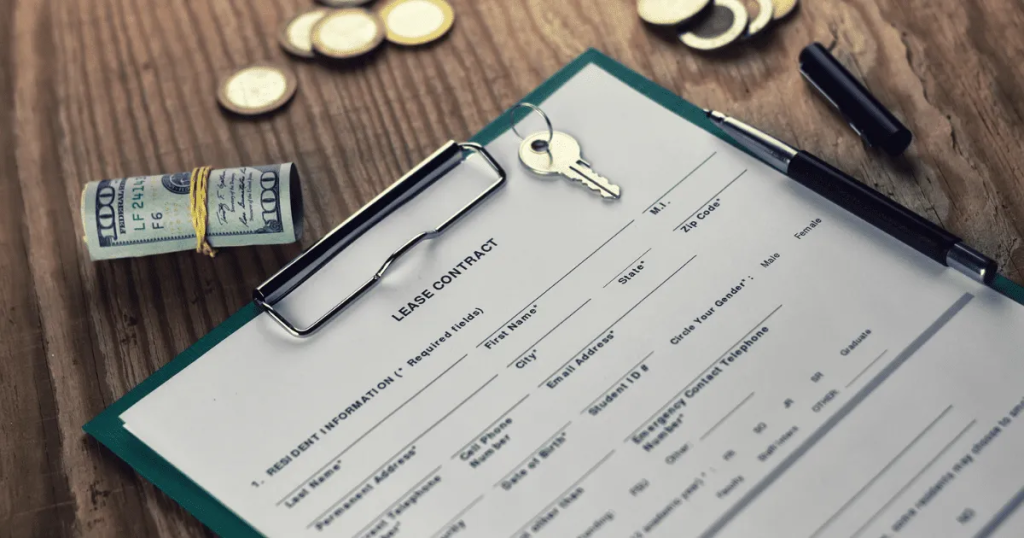Co-ops have always been the first and foremost choice for buyers. They allow an individual to own a share in the building, acquire residential rights, and share common amenities with another proprietary lease, The price of a co-op often varies from location to location. The median sales price of a co-op in Manhattan is $815,000, compared to $229,000 in the Bronx.
When buying the shares of a co-op, one of the key elements that a buyer should consider is the proprietary lease. A proprietary lease is a document that contains all the information of the shareholders purchased and the rights and responsibilities of the shareholders. It is essential for every buyer to understand the importance of a proprietary lease and the responsibility of a shareholder and co-op management before signing the lease.
Let’s first have a look at what a proprietary lease is. Afterwards, we will have an overview of the importance of a proprietary lease, followed by the responsibility of both parties forming the lease.
What is a Proprietary Lease?

A proprietary lease is a type of lease that is specifically designed for the people who own shares in a cooperative housing building (co-op). When you buy shares in a co-op, you don’t own your apartment directly. Instead, you own a portion of the entire building along with other residents. The proprietary lease contains your rights and responsibilities towards that specific portion.
The proprietary lease outlines that, being a tenant, you have some responsibilities towards the building, community, and the area you own. You have to fulfil all those responsibilities and abide by the rules and regulations specified by the co-op management. Furthermore, it outlines the Co-op’s management responsibilities such as building maintenance or repairs.
It generally includes rules for things like how you can use your apartment, whether pets are allowed, where the co-op management can interfere, and how disputes are handled. While you don’t technically own the unit, the proprietary lease gives you long-term rights to live there, as long as you follow the rules set by the co-op.
Let’s see why you need a proprietary lease or what is the importance of a proprietary lease.
The Importance of a Proprietary Lease

A proprietary lease is essential for anyone living in a co-op building, as it defines the rights and responsibilities of both the shareholder and the co-op corporation. This document is a key to ensure a smooth relationship between residents and the co-op corporation. Here is the importance of a proprietary lease.
1. Defines the Resident’s Rights
The proprietary lease clearly outlines the tenant’s right to occupy a specific unit in the co-op building. Unlike traditional property ownership, the resident does not own the apartment but has the legal right to live there. This lease ensures that residents have long-term occupancy, providing them with stability in their living situation.
2. Sets Maintenance and Repair Responsibilities
One of the most important aspects is that it specifies which maintenance tasks are the responsibility of the tenant and which fall under the co-op’s management. This helps prevent disputes and ensures that both the tenant and the co-op board know who is responsible for repairs, upkeep, and renovations.
3. Establishes Rules for Use of the Property
The proprietary lease includes rules on how the resident can use the apartment. These rules cover things like pet ownership, subletting, and modifications to the unit. By laying out these guidelines, the lease helps maintain order in the building and ensures that residents follow co-op policies.
4. Clarifies Financial Obligations
Financial responsibilities such as monthly maintenance fees, property taxes, and utility bills are usually defined in the proprietary lease. It specifies when payments are due and the consequences for non-payment, helping ensure that the co-op is properly funded to cover day to day expenses like building maintenance and services.
5. Governs Conflict Resolution
Disagreements between residents and the co-op board can arise. The includes provisions for how disputes are handled, whether through arbitration, legal proceedings, or internal resolution processes. This helps ensure that conflicts are resolved fairly and efficiently, maintaining peace in the building.
What Are the Responsibilities of a Corporation Under the Proprietary Lease?

Under a proprietary lease, the corporation (usually the co-op board) has several key responsibilities to ensure the smooth operation and upkeep of the building. One of its primary duties is maintaining the common areas, which includes hallways, lobbies, elevators, gym, parks, and halls. The corporation is also responsible for overseeing structural repairs to the building, such as fixing the roof, plumbing, or electrical systems.
Another crucial responsibility is managing the financial aspects of the co-op. This includes collecting monthly maintenance fees from shareholders and using those funds to cover expenses like property taxes, utilities, insurance, and general building maintenance. The corporation must also create and manage a budget to ensure the co-op remains financially stable.
The corporation is further tasked with enforcing the rules and regulations in the building to maintain a peaceful and friendly environment. This includes ensuring that residents follow Guidelines on subletting, noise, renovations, and other day-to-day living matters. Additionally, the co-op board must handle dispute resolution among residents, ensuring that conflicts are addressed fairly and in line with the lease terms.
What Are the Responsibilities of a Shareholder Under the Proprietary Lease?
Under a proprietary lease, a shareholder has several key responsibilities. One primary duty is to pay monthly maintenance fees on time, which cover building expenses such as property taxes, insurance, and maintenance of common areas. Timely payments help the co-op run smoothly and meet financial obligations.
Shareholders are also responsible for the interior maintenance of their own units. This includes tasks like fixing appliances, maintaining plumbing within their apartment, and ensuring that their unit remains in good condition. If the shareholder wishes to make structural changes or renovations, they must usually obtain approval from the co-op board.
Additionally, shareholders must abide by the rules and regulations outlined in the proprietary lease. This can include restrictions on subletting, noise levels, pet ownership, and other guidelines designed to maintain a peaceful living environment. Failure to follow these rules can lead to fines or even legal action from the co-op board.
Partner with Experts: Get Professional Guidance Before Signing Your Proprietary Lease
A proprietary lease is a must have document while buying the shares of a co-op. It not only underlines the rights and responsibilities of the shareholders but also specifies what the co-op management should and shouldn’t do. It is important to have a because it defines both parties rights, sets maintenance and repairs responsibilities, governs conflicts and outlines financial obligations.
Whether forming a lease or finding the right co-op according to your needs and preferences, you need the best professional services to simplify the entire process. By partnering with Citadel Property Management Corp. you can find the best co-op in the desired location with favorable proprietary lease terms.
Frequently Asked Questions
1. How is a proprietary lease different from a traditional lease?
In a traditional lease, you rent from a landlord whereas in a proprietary lease you buy the ownership in the co-op.
2. Do you own the apartment with a proprietary lease?
No, you own shares in the co-op corporation, not the apartment. The lease gives you the right to occupy a specific unit, but the building is collectively owned by all shareholders.
3. What is included in the proprietary lease?
The proprietary lease outlines the rights and obligations of both the shareholder and the co-op, including maintenance responsibilities, rules on subletting, and financial obligations.
4. Can the terms of a proprietary lease change?
Yes, but changes usually require the approval of the co-op board and, in some cases, a vote by shareholders.



